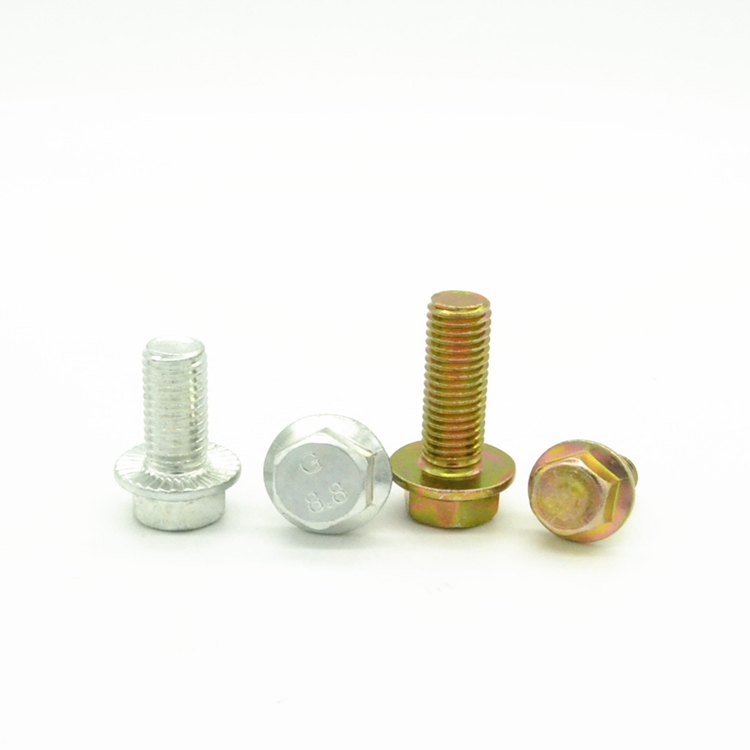Custom B7M Stud Bolts for High-Strength Industrial Applications and Specialized Needs
Oct . 19, 2024 05:03 Back to list
Custom B7M Stud Bolts for High-Strength Industrial Applications and Specialized Needs
Understanding Custom Stud Bolt B7M Key Features and Applications
In the world of industrial fasteners, stud bolts play a crucial role in ensuring the structural integrity and stability of various systems. Among the various grades and specifications available, the B7M grade stud bolt stands out for its exceptional properties and versatility. This article delves into the specific features, manufacturing processes, and applications of custom stud bolts B7M, showcasing their importance in modern engineering.
What is a Stud Bolt?
A stud bolt is essentially a long rod or bar that is threaded on both ends, allowing it to be inserted into nuts and bolts to secure two or more components together. Unlike regular bolts, which have a head on one end, stud bolts are typically positioned through a hole in the components they are fastening, which makes them ideal for high-strength applications.
Key Features of B7M Grade Stud Bolts
The B7M grade stud bolts are made of an alloy steel material that has been specifically designed to handle high stress and extreme environments. Here are some of the defining characteristics of B7M stud bolts
1. Material Properties B7M nuts and bolts are made from a high-strength steel, treated to offer excellent resistance to corrosion and high temperature. The 'B7' designation refers to the specification from ASTM (American Society for Testing and Materials) ASTM A193, which outlines the mechanical properties and chemical composition required for this type of stud bolt.
2. Heat Treatment B7M stud bolts undergo heat treatment processes to enhance their mechanical properties, allowing them to maintain high strength even under significant stress. This gives them greater fatigue resistance compared to standard bolts.
3. Corrosion Resistance Unlike standard B7 bolts, B7M are often coated with materials that enhance their resistance to rust and corrosion, making them suitable for use in harsh environments including chemical processing plants and oil refineries.
4. Custom Lengths and Sizes One of the key advantages of custom stud bolts B7M is the ability to order specific lengths, diameters, and thread types according to the requirements of the application. This customization ensures that the fasteners will fit perfectly and provide optimal performance.
custom stud bolt b7m

Applications of B7M Stud Bolts
Due to their robust characteristics, B7M custom stud bolts are widely used in various industries
1. Oil and Gas Industry The oil and gas sector relies on B7M stud bolts in drilling rigs, pipeline flanges, and pressure vessels. Their ability to withstand high temperatures and pressures makes them integral to these applications.
2. Chemical Processing In chemical plants, B7M bolts can be used to secure reactors, columns, and storage tanks where corrosive substances are present.
3. Power Generation In power plants, B7M stud bolts are commonly used in turbine components and other high-stress areas that require reliable fastening solutions.
4. Aerospace and Automotive The aerospace and automotive industries utilize B7M stud bolts where safety and reliability are paramount. Their strength ensures that components remain securely fastened under varying conditions.
The Importance of Customization
Custom stud bolts B7M not only provide versatility but also allow for adjustments based on specific client needs. Engineers and manufacturers can work closely with suppliers to design bolts that meet precise specifications ensuring compatibility with existing systems and compliance with safety standards.
Conclusion
Custom stud bolts B7M represent a vital component in contemporary industrial applications. Their material properties, combined with the option for customization, make them an excellent choice for a variety of demanding environments. As industries continue to evolve and require more specialized fastening solutions, B7M stud bolts will undoubtedly play an essential role in engineering robust and reliable systems. Whether in oil and gas, chemical processing, or power generation, the importance of understanding and implementing the right stud bolt cannot be overstated.
Latest news
-
High-Quality Panel Stud Bolt Reliable Panel Stud Bolt Factory & Suppliers
NewsJul.08,2025
-
High-Precision Fine Thread Locknuts Manufacturer & Supplier Custom Solutions
NewsJul.08,2025
-
PH Imperial Stud Bolt – High Strength Fasteners from Leading Supplier & Factory
NewsJul.07,2025
-
High-Quality Allen Wrench Bolts Leading Factory, Company & Suppliers
NewsJul.07,2025
-
Wholesale Ball Stud Bolt - High Quality Supplier & Factory Price Reliable Wholesale Ball Stud Bolt Company
NewsJul.06,2025
-
High-Strength Alloy Bolts Manufacturer & Supplier Quality Alloy Fasteners Factory
NewsJul.06,2025
